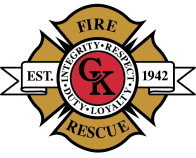By Joseph Schweiger, CKFR Firefighter/Paramedic
“One minute he was fine, then the next he/she wasn’t able to speak”. This complaint and others similar to it are encountered by Central Kitsap Fire and Rescue paramedic crews on a regular basis. These complaints may signal a serious condition known as a Cerebral Vascular Accident or Stroke.
A stroke is the blockage of blood flow to the brain, causing irreparable damage to brain tissue similar to what happens to the heart during a heart attack. Strokes injure nearly 750,000 people and kill 150,000 people each year. Early recognition, quick intervention and treatment can increase survivability and reduce the damage caused by stroke.
Symptoms of a stroke can be barely noticeable or profound. In any case the symptoms appear suddenly. People who are suffering a stroke may have one or more of the following symptoms:
- Numbness or weakness in the face, arms, or legs especially on one side of the body
- Confusion, difficulty speaking or understanding speech
- Vision disturbances such as blurring or double vision in one or both eyes
- Dizziness, trouble walking, loss of balance or coordination
- Severe headache with no known cause
The damage to the brain caused by the stroke varies by severity and length of time for medical treatment. Some victims may be left with mild or no disability but, in severe cases, a stroke can leave the victim requiring extensive rehabilitation and nursing care.
Today there are promising new drugs and treatments for the victim of a stroke. The invention of blood clot “busting” medications can reopen the flow of blood in some stroke victims. The usefulness of these medications depends on quick identification of a medical problem and calling 9-1-1 for rapid medical intervention.
If you or someone else experiences stroke symptoms call 9-1-1 immediately without delay to obtain help from the medical staff of Central Kitsap Fire and Rescue. With early detection and intervention damage from a stroke may be minimized and full recovery realized.
For more information on the warning signs of stroke and prevention and treatment options please visit,www.strokeassociation.org key words: American Heart Association Stroke.
Sources: National Institute of Neurological Disorders and Strokes American Heart Association

